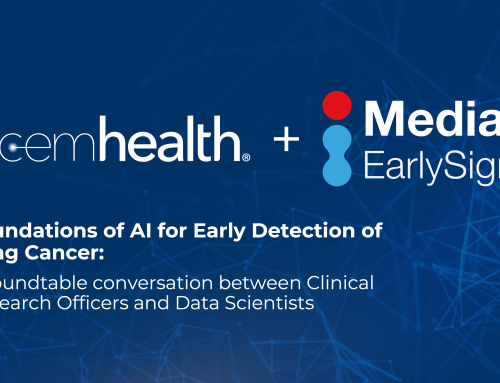
Preventive Healthcare with AI: A Smarter Approach to Disease Prevention
Preventive health screening is a proactive approach to detect and treat potential health problems before they become serious. By identifying risk factors and early signs of diseases that may not show symptoms or complications yet, preventive health screening plays a crucial role in maintaining overall well-being. However, un-targeted, broad-based screening for diseases has inherent inefficiencies. According to a study published in the Journal of the American Medical Association (JAMA), only 24% of preventive healthcare services are considered as “high value” care [1]. And this is where artificial intelligence (AI) steps in, enabling a more targeted approach to preventive healthcare and early disease detection.
The Challenges of Traditional Preventive Health Screening
Traditional screening programs often require the participation of large numbers of people, even to target diseases that ultimately affect few. As an example, mammography screening for breast cancer reduces mortality by 15% to 20% [2], resulting in fewer lives saved than a more targeted approach could potentially achieve. In addition, broad-based screening programs may not prioritize patients with higher apparent risk factors, potentially missing opportunities to intervene and prevent serious health outcomes.
Improved Targeting for Patients with Apparent Higher Risk Through Clinical AI
As we look past the challenges of traditional preventive health screening, clinical AI offers a smarter approach to preventive health screening and early disease detection that focuses on targeting patients more effectively. A systematic review published in BMC Medical Informatics [3] suggests that using machine learning algorithms can offer better diagnostic accuracy when compared to traditional methods. By identifying patients with higher apparent risk factors for certain chronic or serious conditions, clinical AI allows healthcare providers to prioritize screening and prevention efforts for those patients, ultimately resulting in greater clinical and financial yield.
The ability to identify patterns in patient data using AI enables healthcare providers to hone in on targeted more manageable groups of patients. When a specific patient group has a significantly higher risk of developing a disease if left untreated, the preventive measures and early interventions taken for that group are more likely to improve overall outcomes. As a result, this targeted approach for early disease detection delivers more clinical benefits as preventive care is prioritized for patients who will benefit most from it.
Furthermore, treatment for patients with higher risk or severity of diseases often brings higher reimbursement, and for providers that have accepted the financial risk of managing patients, early detection generally means that diseases can be treated at a lower cost. According to a McKinsey report [4], the effective use of AI in healthcare could result in an annual savings of $300 billion in the US alone.
The Future of Preventive Healthcare with AI
By leveraging artificial intelligence, healthcare providers can overcome certain challenges of traditional preventive health screening methods and better prioritize patient care. In practice, implementing AI-driven predictive analytics allows for more accurate identification of patients with higher risk, resulting in improved health outcomes and optimized healthcare costs.
In conclusion, the future of preventive healthcare lies in harnessing the power of AI to target disease prevention and intervention efforts more effectively. Above all else, as AI technology continues to advance, we can expect to see even more innovative applications that significantly enhance the preventive healthcare landscape.
Sources:
[1] Maciosek, M. V., Coffield, A. B., Flottemesch, T. J., Edwards, N. M., & Solberg, L. I. (2010). Greater use of preventive services in U.S. health care could save lives at little or no cost. *Health Affairs, 29*(9), 1656-1660. [2] Nelson, H. D., Pappas, M., Cantor, A., Griffin, J., Daeges, M., & Humphrey, L. (2016). Effectiveness of breast cancer screening: systematic review and meta-analysis to update the 2009 U.S. Preventive Services Task Force Recommendation. *Annals of Internal Medicine, 164*(4), 244-255. [3] Lei, N., Zhang, X., Wei, M., Lao, B., Xu, X., Zhang, M., Chen, H., Xu, Y., Xia, B., Zhang, D., Dong, C., Fu, L., Tang, F., & Wu, Y. (2022). Machine learning algorithms’ accuracy in predicting kidney disease progression: A systematic review and meta-analysis. *BMC Medical Informatics and Decision Making, 22*(1). https://doi.org/10.1186/s12911-022-01951-1 [4] Biesdorf, S., Henke, N., & Mehlman, E. (2020). Artificial intelligence in healthcare: A new opportunity to leverage the power of data. *McKinsey & Company*.